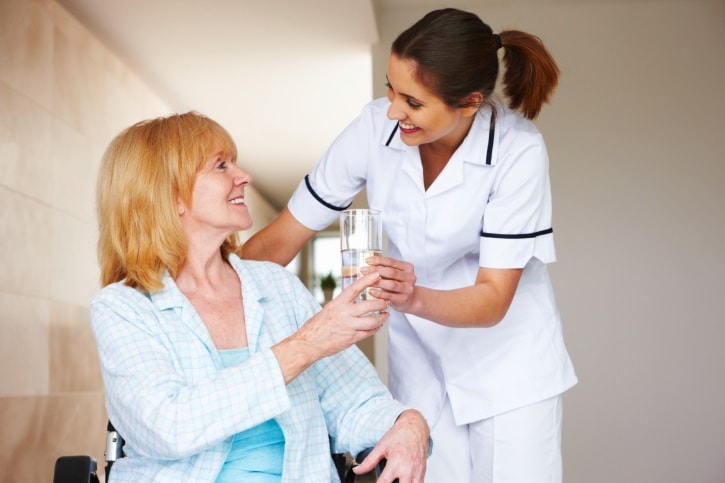Hypoglycemia
Diabetic and non-diabetic hypoglycemia is a rare occurring state, however; it is considered a life-threatening one as well. It is a condition where our body is having low levels of sugar mainly glucose in the blood. Usually, all cells and organs in our body need sugar as its main source of energy. The most affected organ is the brain because the brain uses only glucose as its fuel to function properly.

Low blood sugar can occur to patients who have diabetes. Although diabetes is a condition of high blood sugar levels, however; in some cases, diabetic patients may consume overdose treatments that result in diabetic hypoglycemia. Also, it can occur to anybody. So it affects both diabetic and non-diabetic people.
Unawareness of Hypoglycemia
Unawareness of the presence of low levels of sugar in the blood is because either the levels are not low enough to start symptoms and signs, or the levels are low enough to start symptoms but the body is unaware of it and is not responding to these levels. In the second case. Unfortunately, it is a dangerous situation that might lead to death if not well managed.
Now, let’s discuss more the mechanism that leads to hypoglycemia in our bodies.
What Happens Inside Our Body?
Our body is in a symphonic balance. It keeps everything under control in order to be as healthy as possible. One of these pathways is insulin, glucagon, liver, muscles and blood sugar, they are all involved in balancing our blood sugar levels. Insulin is the hormone responsible for lowering the blood sugar levels after meals while Glucagon is responsible for increasing blood glucose levels during fasting or when blood sugar levels are low. For the liver and muscles, they are responsible for storing extra glucose.
When blood levels of sugar are low, the body tries to respond to elevate it. However, if the levels are too low or the body is not responding properly, here comes the problems or complications.
Low levels below 70 mg/dl are an indicator of other disorders or diseases that require immediate treatment or management.
Hypoglycemia symptoms
The hypoglycemia symptoms are related to the levels of glucose in the blood. As the levels decrease as the symptoms appear and become more and more severe and difficult to control.
They include:
- Your face, lips, hands and may also your feet become pale. This is because of the low blood supply to the skin.
- Tremors
- You may feel cold.
- Fatigue
- You feel hungry.
- You feel as if there is a needle pricking in your limbs or around your mouth.
- Anxiety and worry.
- Your heart rate is high and sometimes it is low.
- Excessive sweating or in other words sweating at rest.
- Cold sweating.
- Irritability
- Deep breathing and a high rate of breathing.
- Difficulty to speak.

And as the levels drop more and more; the brain damages gradually and symptoms become worse such as:
- Headache
- Confusion
- Seizures
- tremors due to low energy supply to the muscles.
- Disturbance in behavior.
- Difficulty concentrating and perform mental and physical activities.
- Blurred vision.
- Nightmares
- Nervousness
- Fainting
- Weak muscles.
- Mood changes.
What are the causes of hypoglycemia?
Hypoglycemia causes

For diabetic patients, the causes of low blood sugar are mainly due to treatment and daily routine, they include:
- High insulin dose. When you take a dose that is higher than the doctor gave you or the doctor himself gave you the wrong dose.
- Taking insulin without eating or taking insulin and not eating the right amount and type of food.
- High dose of oral drugs for diabetes treatment. They are used mainly for type 2 patients. Research in diabetes research and clinical practice journal in August 2015 shows that some oral drugs misuse causes a disturbance in blood sugar levels
- Skipping a meal during the day.
- unbalanced diet.
- Excessive exercise.
Non-diabetic hypoglycemia causes
- Any disease, habit or action that affects the liver such as liver inflammation, drinking alcohol, etc…
- Kidney diseases.
- Starvation
- Low levels of hormones that oppose the action of insulin. Normally, they increase blood sugar levels such as growth hormone.
- Some medications decrease glucose levels such as anti-malarial drugs.
- Tumor in the pancreas that stimulates the excessive release of insulin.
- Tumor in the brain. The brain has the pituitary gland which is the master gland that regulates different glands in the body including the pancreas.
- During cancer treatment. Some doctors use the idea of decreasing glucose supply to the cancer cells. Cancer cells use multiple amounts of glucose more than normal cell usage. A study in Medical Hypotheses Journal in June 2019
- A meal that is rich in fats and carbohydrates. This meal stimulates the release of too much insulin from the pancreas into the blood.
- Deficiency of glucagon. Some diseases can affect the cells responsible for the release of Glucagon.
Awareness of hypoglycemia
If you have any condition or disease that affect the levels of sugar in the blood, you should take care and be aware of your glucose blood levels. If you don’t have any disease or condition, then try to be aware of any symptom that indicates low sugar levels. In the case of no symptom, it is safe to monitor your self periodically.
Studies show that different periods of newborn delivery can affect their blood sugar such as the study in Pediatrics and Neonatology Journal in August 2018 that shows that if early delivery of newborns makes them at higher risk of developing low levels of blood sugar.
Hypoglycemia diagnosis
The diagnosis includes measuring blood glucose levels using small metered devices that is easy to use at home by the patient, also lab strips, etc…
A blood level below 70 mg/dl is a warning sign.
Signs, symptoms, and blood sugar levels are the elements that help in diagnosis.
The symptoms of low blood pressure and low blood sugar levels are sometimes confusing. In order to be sure of the cause it is important to measure blood pressure as well to be able to provide the right treatment and management.
Complications of hypoglycemia
- Seizures
- Tremors
- Decreased conscious.
- Coma
- Brain damage.
- Secondary liability to accidents and injuries.
- Inability to move or perform mild activities.
- At the dangerous levels, it leads to death.
- High levels of fats in the blood because the body uses fats and protein as an alternative source of energy.
- The acidity of the blood increases which is dangerous on the brain, muscles and different body organs and tissues.
- Low levels of blood sugar delay the mental development of the newborn and if it persists it will lead to brain damage and mental retardation.
- In a study in the Journal of clinical and translational endocrinology in March 2019, it shows that low blood sugar levels are associated with depression and sleep disorders.
An important study in Nutrition, Metabolism and Cardiovascular Diseases’ Journal in July 2019 shows that long-term low levels of sugar in the blood affect the quality of life of the patient. The patient is unable to live normally and perform different activities during his/her day.
Hypoglycemia treatment

The extent of treatment depends on the severity of the condition. In all cases, it includes the immediate correction of blood sugar levels. After measuring blood sugar levels the treatment includes:
- It is faster to drink fresh juices.
- Eating food which contains sugar such as fruits.
- Eat one or two small pieces of dark chocolate.
- Take one teaspoonful of sugar, glucose tubes or candy but if you are diabetic don’t take sugar without the doctor’s supervision.
- In severe cases, the patient is usually at a hospital. The treatment includes intravenous solutions containing glucose.
- For your safety, it is important to get rest and sit down.
Hypoglycemia prevention
Prevention for diabetic patients include:
- For doctors, Prevention includes patient education:
It is important to educate the patients about his/her medications such as:
- How?
- When?
- The dose to take and sometimes why they take them.
- Educate them about the frequency of taking the medications.
- Patients need to have knowledge about what medications to take together or food to eat before and after medications.
- Also, they need to know the idea of dose compensation or the next dose increase in case they forgot a dose.
- For the patient, it includes the patient’s awareness, behavior, and lifestyle such as:
- Take your insulin and oral hypoglycemics according to your doctor’s instructions.
- You shouldn’t exercise more than enough.
- Eat the right healthy food for you.
- You mustn’t skip a meal or a snack.
- Measure your blood sugar levels regularly. You should keep it below 140 mg/dl if fasting and below 200 mg/dl if you are measuring it after the meal by 2 hours.
- Don’t take any drug without consulting the proper doctor.
- Prevention for non-diabetic patients include:
- Consult your doctor before taking any medications.
- Don’t skip a meal or a snack.
- Eat from 5 to 6 small meals during the day.
- Avoid drinking alcohol.
- It is important to eat your breakfast daily and never skip it.
- Treat and manage the underlying disease, disorder or drug that is responsible for the low sugar levels.
- Measure and monitor the blood sugar levels and to keep it below 100 mg/dl if fasting for at least 8 hours and below 140 mg/dl after the meals by 2 hours.
For diabetic and non-diabetic patients, it is important to monitor and manage blood pressure.

In conclusion, Hypoglycemia whether diabetic or non-diabetic Is not a frequently occurring case. However, it is a critical one. Thus, it is important to monitor your diet intake daily. For me, fresh juices are the most preferable prevention for both diabetic and non-diabetic patients, especially in summer. They are safe as long as free sugar and healthy as well. In all cases, a sachet of sugar in your backpack, a candy, or a bar of chocolate will always help in those cases. Not only for you but to be ready for emergency situations around you ;).
Do not forget to check all the diabetes mellitus posts to be more knowledgeable through https://fitnesshealthforever.com/




I was cured from Diabetes with the use of a different combination of Africa herbs. it is still like a dream to me. There is no word suitable enough to qualify your significant in my life dear doctor.